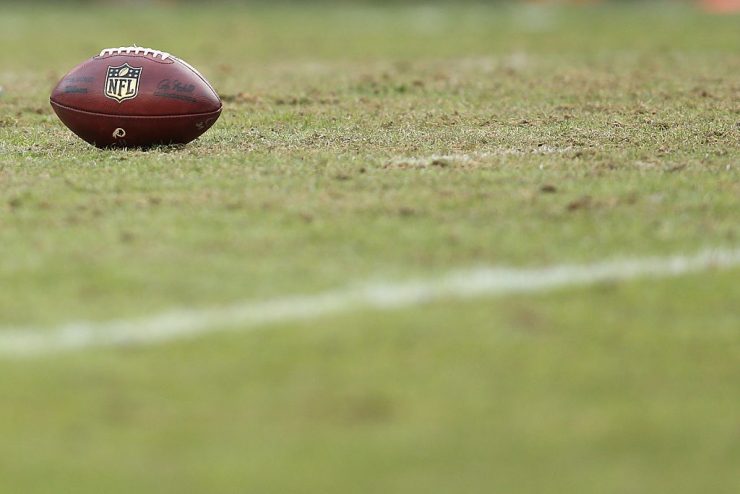After months of debate, the NFL passed a new rule regarding fair catches on Tuesday morning, May 23, 2023.
This rule is in effect for one year, during the 2023 season, with reevaluation after that time.
The new NFL rule is the same as college football’s fair catch rule.
What The New Rule Says
On punts and kickoffs when a fair catch is indicated, the ball will automatically be placed on the 25-yard line.
That means if the player fair catches the ball on the 1-yard line, his offense will take possession on the 25 yard line, giving his offense a net gain of 24 yards.
The NFL has passed a new rule instituting all fair catches and touchbacks come out to the 25-yard line on kickoffs, source said. Now the same as the college rule, the thought is that this should make it safer, though special teams coaches around the league oppose the change.
— Ian Rapoport (@RapSheet) May 23, 2023
The motivation for the rule is player safety because of the injuries sustained by players running back the kicks.
Despite the fact that it passed, there is plenty of opposition to this change because of the strategic implications for special teams, and many NFL special teams coordinators are opposed to it.
Former NFL kicker Pat McAfee sounds off about how it degrades the NFL into delivering an amateur-looking product on special teams.
"This rule is ABSOLUTE GARBAGE" @PatMcAfeeShow pic.twitter.com/b715vZV2ep
— Pat McAfee Show Quotes (@PatMcAfeequotes) May 23, 2023
How Will It Be Implemented?
The goal for punts and kicks used to be to get the ball as close to the goal line as possible without going into the endzone.
This will likely reduce the number of high kicks and may encourage a strategy of line-drive kicks that bounce and are unable to be fair caught.
It makes the role of the punt/kick returner a little less important because he just needs to signal a fair catch and secure the ball.
The punter/kicker will have to be a bit more skilled at kicking and not just be players with iron legs that can boot the ball as high and far as possible.
What Is The Motivation For The Rule Change?
Using player safety as the overriding reason is questionable also since the NFL yesterday adopted a flex schedule for Thursday Night Football games which is believed to be to the detriment of the players.
Many are surprised this rule passed and hope that it has just a one-year life in the NFL and is eliminated in 2024 when it is revisited.
Add The Sports Daily to your Google News Feed!







